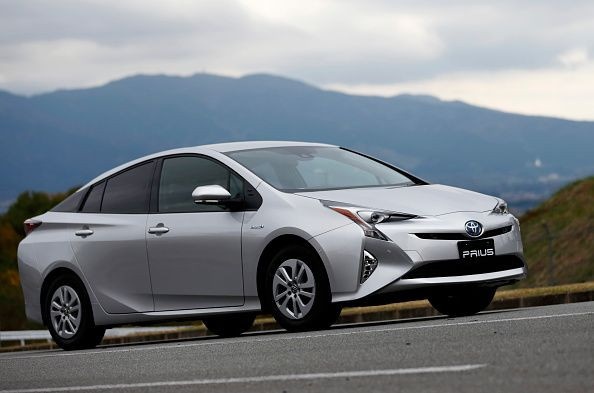Toyota And Panasonic Joint Venture: What Does EV Battery Development Mean For The Two Companies?

Toyota (TM) and Panasonic (PCRFY) have entered into a joint venture to produce electric vehicle batteries, expected to begin by the end of 2020.
Together, the two companies will create a new business entity that will “cover research, development, production engineering, manufacturing, procurement, order receipt, and management related to automotive prismatic lithium-ion batteries, solid-state batteries, and next-generation batteries.”
Toyota will own 51 percent of the joint venture with Panasonic holding the remaining 49 percent. Toyota said it will move equipment and personnel to the new company for development and production engineering for the battery cells. Panasonic will also transfer equipment as well as other assets, liabilities and personnel for development, production engineering, manufacturing, procurement, and management.
The companies said that a total of 3,500 employees will be moved to the joint venture from both Toyota and Panasonic. The joint venture will also have production plants located in Japan and Dalian, China. Panasonic will be responsible for the sale of the batteries to automakers.
The joint venture is a move by Toyota and Panasonic to compete in the electric and autonomous vehicle markets. The two companies entered in a business agreement in December 2017 to study the feasibility of producing prismatic batteries together.
The companies said that they achieved success in the battery arena and will move forward with a collaboration to produce prismatic batteries that offer both higher performance and lower cost. Toyota and Panasonic said they came to a confident conclusion that they could achieve competitiveness in the battery sector together, allowing the companies to “fuse strengths.”
The companies said through the joint venture, they are positioning themselves to be a market leader in the EV battery business. “Together with Panasonic, we want to hone our competitiveness in batteries, which represent one of the core technologies of electrified vehicles,” Toyota Executive Vice President Shigeki Terashi said in a statement.
“By contributing to the popularization of Toyota's and other automakers' electrified vehicles, we want to help find solutions to issues such as global warming, environment-related challenges, and energy-related challenges.
“We have high expectations for the new company, including — as we aim to deliver ever-better electrified vehicles to even more customers — its role in fulfilling our plans for the popularization of electrified vehicles * (including achieving Toyota annual global sales of more than 5.5 million units of electrified vehicles), which we announced at the end of 2017.”
The joint venture is pending approval from competition regulators in the respective countries of operation.
Shares of Toyota were down .89 percent as of 11:36 a.m. EST on Tuesday while Panasonic shares were down 0.05 percent at the same time.
© Copyright IBTimes 2024. All rights reserved.





















